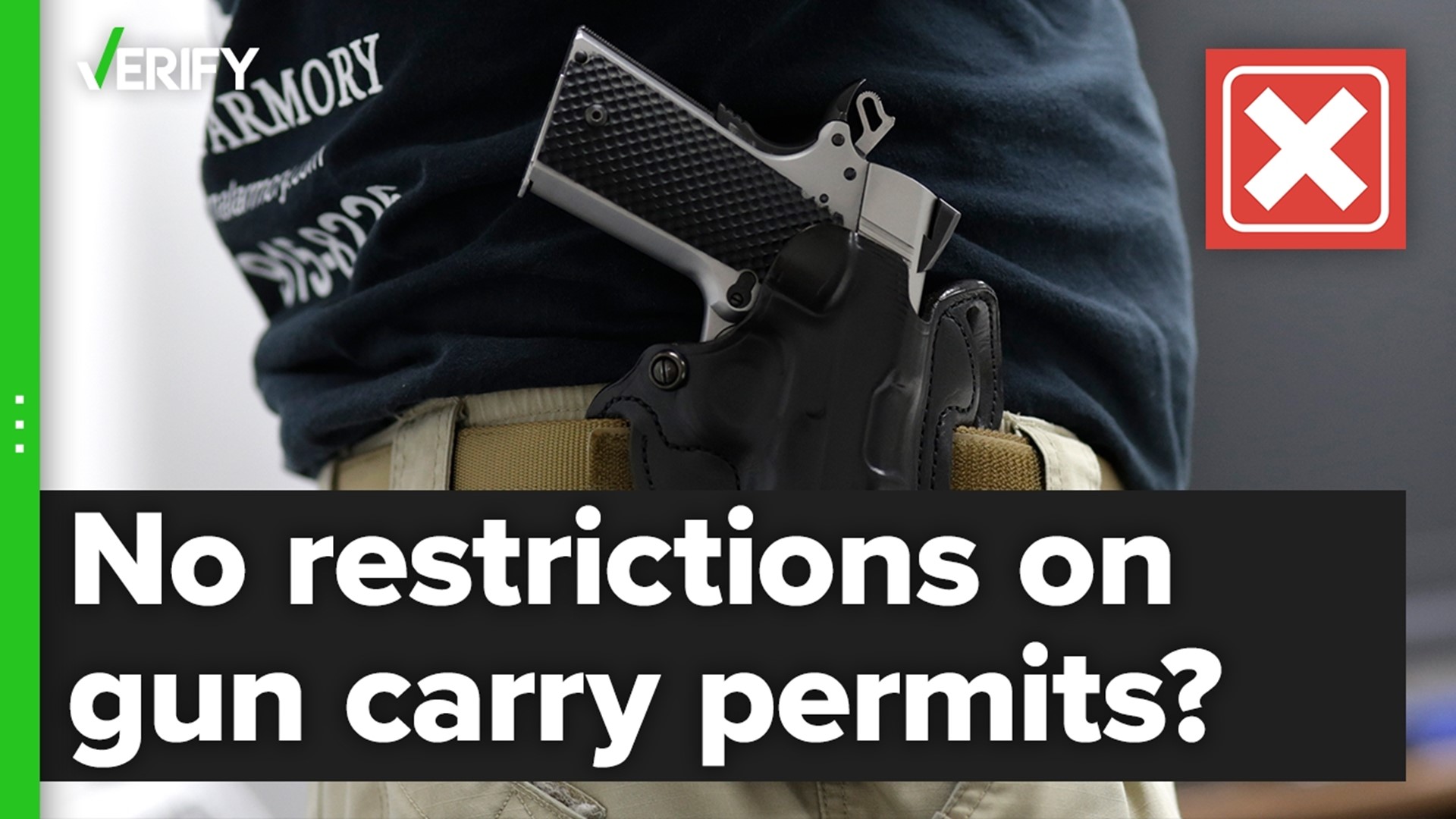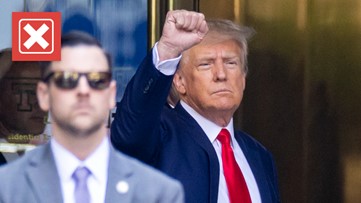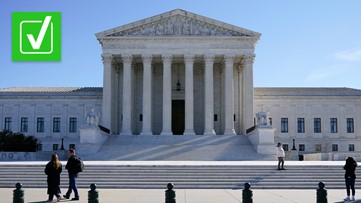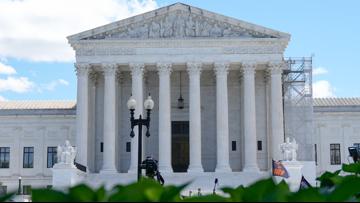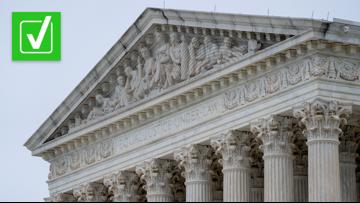On June 23, the Supreme Court issued a monumental ruling on gun rights for the first time in more than a decade, striking down a century-old New York law which placed heavy restrictions on who could carry handguns in public.
The law required applicants for concealed carry permits to provide a special reason why they needed one, such as a specific threat to their safety. The court ruled that the requirement violates the Second Amendment right to bear arms, in a 6-3 decision with the conservative justices making up the majority.
Although the ruling struck down a specific New York law, several other states have similar laws on the books, and most states have some form of restrictions on who can obtain gun permits. That led to questions on social media about whether all state laws regarding permits for concealed carry are now overturned.
THE QUESTION
Did the Supreme Court overturn all state restrictions on concealed carry firearm permits?
THE SOURCES
- U.S. Supreme Court, decision in New York State Rifle & Pistol Association v. Bruen
- U.S. Constitution
- New York Penal Law
THE ANSWER
No, the ruling did not overturn all state restrictions on concealed carry firearm permits.
WHAT WE FOUND
The case in question is called New York State Rifle & Pistol Association v. Bruen.
Several years ago, two men in the Albany area each applied for unrestricted licenses to carry handguns in public. Both men already had restricted licenses, meaning they could carry guns for specific purposes like target practice, but they wanted to be able to carry elsewhere for self-defense.
Before the recent Supreme Court ruling, to obtain such a permit, New Yorkers had to work in a list of legally-approved jobs, or demonstrate “proper cause” for carrying. New York courts have defined “proper cause” as “a special need for self-protection distinguishable from that of the general community.”
The state licensing officials denied the requests for unrestricted permits, finding the two men did not meet the “proper cause” standard. The men sued, but lower courts ruled against them.
The Supreme Court agreed to hear the case. The conservative majority has now ruled that New York’s permitting process interfered with its citizens Second Amendment right to bear arms by requiring people to pass a subjective standard in order to exercise that right.
“We know of no other constitutional right that an individual may exercise only after demonstrating to government officers some special need. That is not how the First Amendment works when it comes to unpopular speech or the free exercise of religion,” Justice Clarence Thomas wrote. “And it is not how the Second Amendment works when it comes to public carry for self defense.”
But the court made clear other requirements – ones it said are more objective – are constitutional and can remain.
It classified state restrictions into two groups: “shall-issue” and “may-issue.” Shall-issue laws require licensing officials to give permits to anyone who meets a list of criteria. May-issue laws leave the decision of whether to issue the permit up to licensing officials, even if the applicants meet all the objective criteria.
“Shall-issue regimes may require a license applicant to undergo fingerprinting, a background check, a mental health records check, and training in firearms handling and in laws regarding the use of force, among other possible requirements,” Justice Brett Kavanaugh explained in a concurring opinion.
“The 43 states that employ objective shall-issue licensing regimes for carrying handguns for self-defense may continue to do so. Likewise, the 6 states including New York potentially affected by today’s decision may continue to require licenses for carrying handguns for self-defense so long as those states employ objective licensing requirements like those used by the 43 shall-issue states.”
In other words, Kavanaugh made it clear that the vast majority of state laws for concealed carry can remain in place following the June 23 decision. However, several states will have to modify their existing laws to comply with the ruling, expanding the ability of millions of people to obtain concealed carry permits.
